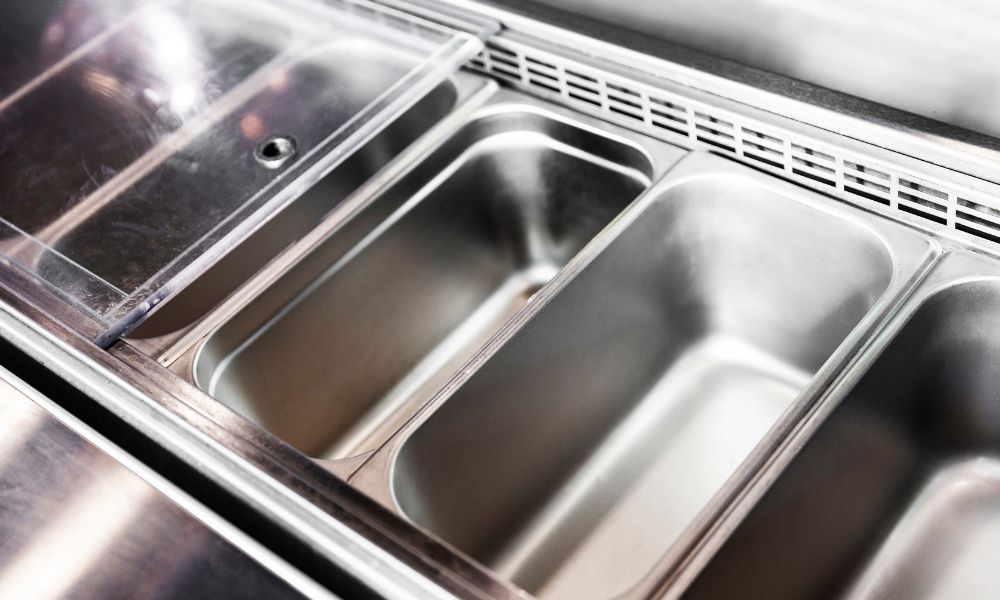Benefits of Using Brass Over Stainless Steel
Leave a Comment
Deciding between brass and stainless steel may come down to what’s more aesthetically appealing. However, the differences between the two metals go beyond color and what matches your kitchen or bathroom. Let us break down the brass tax and explore the benefits of using brass over stainless steel.
Corrosion-Resistant
Brass is far more corrosion-resistant than stainless steel. Steel is very vulnerable to corrosion in its unprotected, unalloyed state. Because of that, chromium in stainless steel coatings helps to reduce the corrosion rate. Even with chromium, however, steel can still corrode.
Brass resists corrosion better than other metals. It has no iron interaction, making it last much longer than steel. As a result, brass is the metal of choice in the plumbing industry. Opting for brass ensures no faulty or busted pipes can wreak havoc on your project.
More Malleable
Ductility is vital with metals because we often contort them into unique shapes. Brass is better to work with because steel is quite stiff. While rigidity is ideal for some circumstances, other applications require malleable materials.
Brass is the answer to your flexibility needs. You can use brass in various applications, most notably in the automobile sector. When steel gets too hot from the engine or other components, it can crack or break. Brass, on the other hand, adapts to heat.
Better Conductor
Conducting electricity is an important ability for many metals. The primary difference between steel and brass is that the latter is a far better electrical conductor. Steel combines iron and carbon, making it poor at conducting electricity. For this reason, many electrical experts advocate replacing steel wires with brass. In addition to lowering the risk of electrical fires, brass simplifies supplying power to a house.
Applications for Each Metal
Stainless steel and brass have unique uses thanks to their composition. Steel is ideal for building projects due to its durability and longevity. It is a popular choice among architects for making the framework of structures like bridges and houses.
Smaller, more delicately manufactured projects often include brass because of its versatility and affordability. You can mold and shape brass to suit your needs with relative ease. It’s common in producing plumbing fixtures, valves, and fasteners for automobiles and airplanes.
It all comes down to what the project is when debating the benefits of using brass over stainless steel. Thin Metal Sales can cater to your needs by being the most trusted brass sheet supplier. We are happy to fulfill your requests, whether it’s for a small or large job.
4 Industrial Uses for Aluminum Sheet Metal
Leave a Comment
We may often take for granted how valuable aluminum is in our daily lives. Everywhere you look, you will see something that has aluminum components involved. These four industrial uses for aluminum sheet metal are just the tip of the metal’s importance.
1) Home Appliances
You will find aluminum in many modern homes in their appliances. People often view aluminum and stainless steel interchangeably, especially with appliances like ovens, refrigerators, and laundry machines. However, it will take you a moment to realize how vastly different the materials are by trying to move one. A stainless-steel appliance requires a lot of strength even to budge. On the other hand, aluminum appliances are far lighter.
Temperature resistance is another benefit of aluminum. While stainless steel can handle the heat of the kitchen, it can struggle with the cold. Both hot and cold temperatures won’t phase aluminum appliances.
2) Packaged Goods
Because of aluminum’s malleability, manufacturers depend on aluminum cans for many food and drink items. Aluminum doesn’t rust. So even if you find a decade-old can of soup in the back of your pantry, it will look as flawless as it did the year you bought it.
Aluminum packaging stands head and shoulders above the competition because of its high-end appearance and feel. Companies often get creative with aluminum packaging because of the distinctive forms and striking visuals they can create with it.
3) Strong Cookware
Many of the same benefits you can apply to packaging and appliances also apply to aluminum cookware. As we know from appliances, aluminum can handle both ends of the extreme temperature spectrum. A quality kitchen won’t want to handle weakened stainless-steel pots and pans from cold food items—instead, aluminum cookware is the way to go.
More importantly, aluminum cookware has a non-stick coating that is nearly impenetrable. Add in the fact that aluminum is extremely lightweight, and this cookware becomes the most trusted ally in the kitchen.
4) Fuel-Efficient Vehicles
Using lightweight aluminum for manufacturing vehicles is beneficial for handling purposes. Plus, the weight reduction also improves fuel efficiency. The lighter the car, the more MPG you get. Furthermore, aluminum is corrosion resistant, making an all-aluminum body far more robust than any other material without sacrificing safety measures.
These four industrial uses for aluminum sheet metal prove why it’s the preferred choice for many applications. You can experience the benefits yourself when you’re looking for aluminum sheets for sale from Thin Metal Sales. We offer sheet metal in various materials and sizes to help accommodate all our customers regardless of the job.

